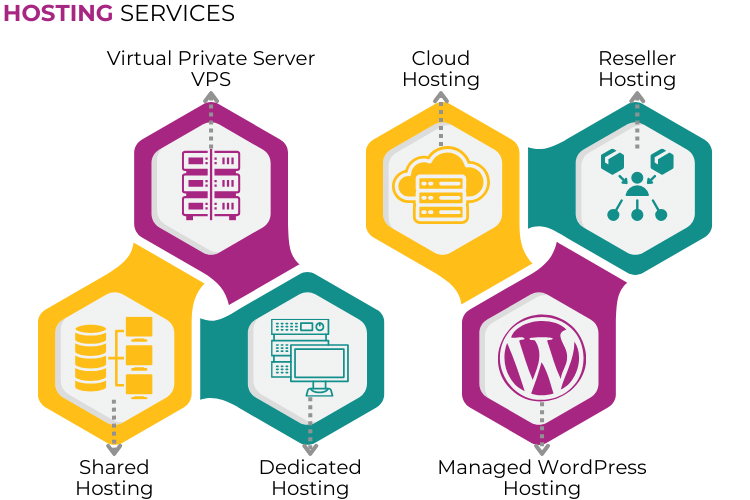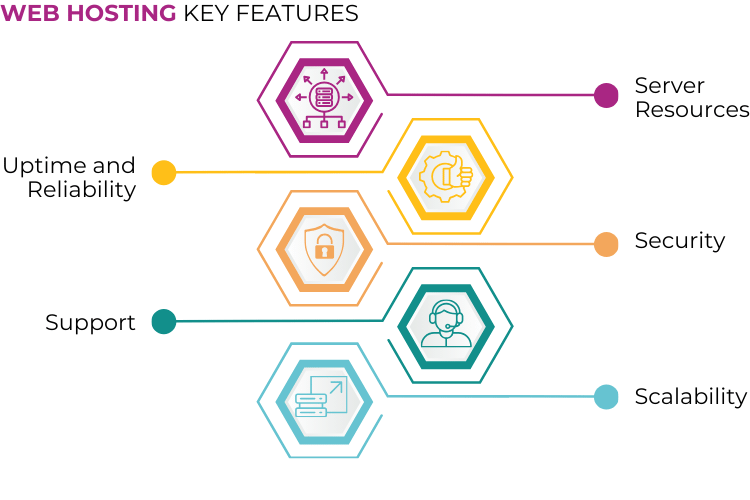Hosting Services
Web hosting is a service that allows individuals and organizations to make their websites accessible on the internet. It involves storing website files, data, and content on servers connected to the internet, making them accessible to users worldwide. Web hosting providers offer various hosting plans and services to meet the diverse needs of website owners. Here's an overview of web hosting:
Types of Web Hosting
Shared Hosting:
In shared hosting, multiple websites share resources (such as server space, CPU, and memory) on the same physical server. It's an affordable option suitable for small websites and beginners but may have limitations in terms of performance and scalability.
VPS (Virtual Private Server) Hosting:
VPS hosting provides a virtualized server environment where each website has its dedicated resources within a shared server. It offers more control, flexibility, and scalability compared to shared hosting, making it suitable for growing websites with moderate traffic.
Dedicated Hosting:
With dedicated hosting, a website gets an entire physical server dedicated solely to its use. It offers maximum control, performance, and security but tends to be more expensive and requires technical expertise to manage.
Cloud Hosting:
Cloud hosting utilizes multiple interconnected servers to distribute website resources dynamically. It offers scalability, reliability, and redundancy, allowing websites to handle fluctuations in traffic and demand effectively.
Managed WordPress Hosting:
Managed WordPress hosting is optimized specifically for WordPress websites, offering features such as automatic updates, enhanced security, and specialized support for WordPress-related issues.
Reseller Hosting:
Reseller hosting allows individuals or businesses to resell hosting services under their brand. Reseller hosting providers offer tools and resources to manage multiple hosting accounts and clients.

Key Features of Web Hosting
Server Resources:
The amount of disk space, bandwidth, CPU, RAM, and other resources allocated to a website varies depending on the hosting plan.
Uptime and Reliability:
Uptime refers to the percentage of time that a server is operational and accessible to users. Reliable web hosting providers guarantee high uptime rates to ensure websites are always available.
Security:
Web hosting providers implement security measures such as firewalls, malware scanning, SSL certificates, and regular backups to protect websites from security threats and data loss.
Support:
Responsive and knowledgeable customer support is crucial for resolving technical issues, answering questions, and providing assistance with website management.
Scalability:
Scalable hosting solutions allow websites to accommodate growth and handle increases in traffic and resource demands without experiencing downtime or performance issues.

Choosing a Web Hosting Provider
When selecting a web hosting provider, consider factors such as pricing, features, performance, reliability, support, scalability, and the specific needs of your website. It's essential to research and compare different hosting options to find the best fit for your requirements and budget.

Overall, web hosting plays a critical role in making websites accessible on the internet, and choosing the right hosting provider and plan is essential for ensuring optimal performance, reliability, and security.
